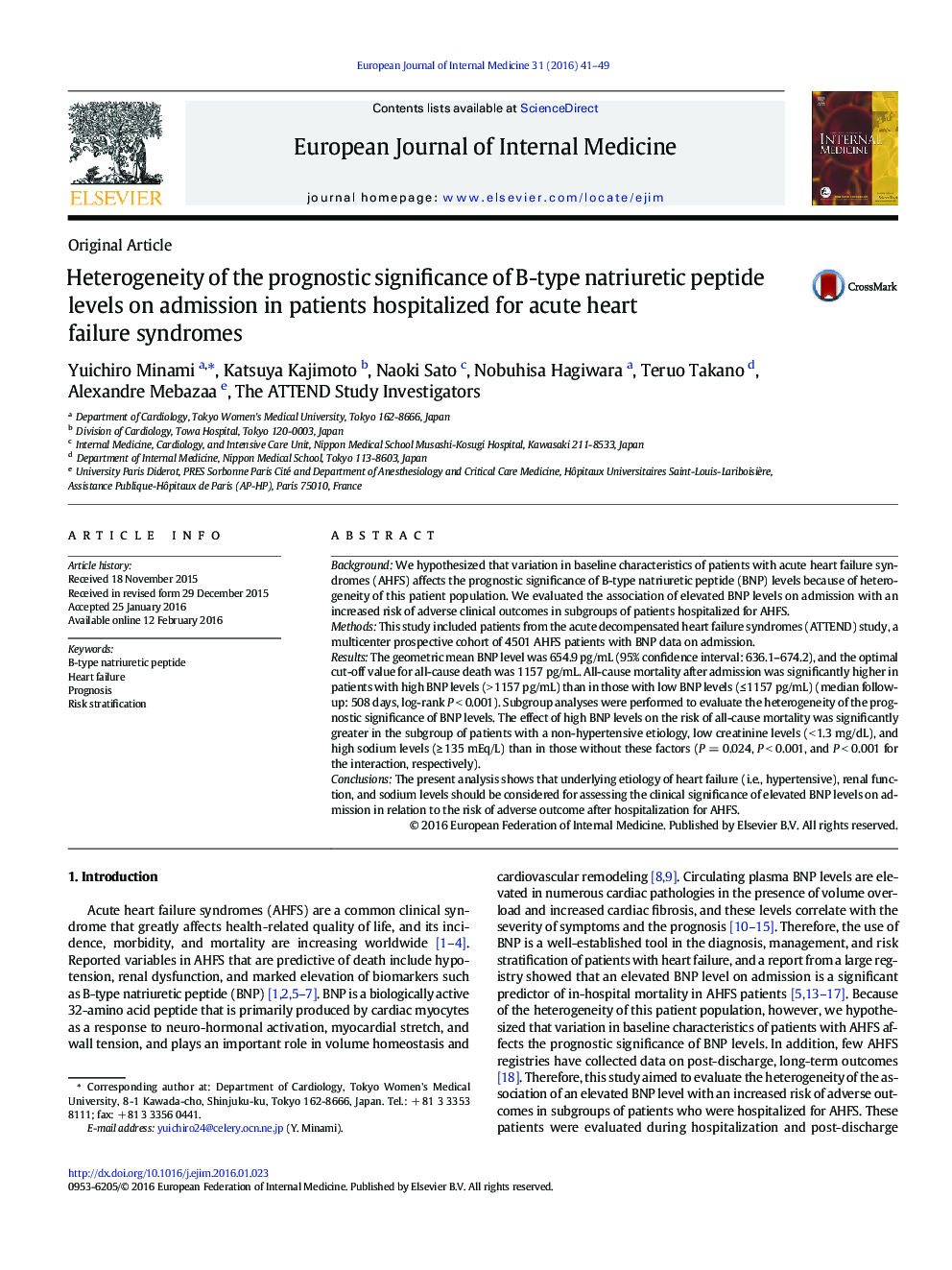| Article ID | Journal | Published Year | Pages | File Type |
|---|---|---|---|---|
| 3465869 | European Journal of Internal Medicine | 2016 | 9 Pages |
•We evaluated heterogeneity of the prognostic significance of BNP levels in AHFS.•Usefulness of BNP as a prognostic factor may be weakened in hyponatremic patients.•Prognostic significance of BNP seems weaker in patients with renal dysfunction.•High BNP levels may not be associated with higher mortality in hypertensive etiology.•Overall, high BNP levels were an important prognostic indicator in AHFS patients.
BackgroundWe hypothesized that variation in baseline characteristics of patients with acute heart failure syndromes (AHFS) affects the prognostic significance of B-type natriuretic peptide (BNP) levels because of heterogeneity of this patient population. We evaluated the association of elevated BNP levels on admission with an increased risk of adverse clinical outcomes in subgroups of patients hospitalized for AHFS.MethodsThis study included patients from the acute decompensated heart failure syndromes (ATTEND) study, a multicenter prospective cohort of 4501 AHFS patients with BNP data on admission.ResultsThe geometric mean BNP level was 654.9 pg/mL (95% confidence interval: 636.1–674.2), and the optimal cut-off value for all-cause death was 1157 pg/mL. All-cause mortality after admission was significantly higher in patients with high BNP levels (> 1157 pg/mL) than in those with low BNP levels (≤ 1157 pg/mL) (median follow-up: 508 days, log-rank P < 0.001). Subgroup analyses were performed to evaluate the heterogeneity of the prognostic significance of BNP levels. The effect of high BNP levels on the risk of all-cause mortality was significantly greater in the subgroup of patients with a non-hypertensive etiology, low creatinine levels (< 1.3 mg/dL), and high sodium levels (≥ 135 mEq/L) than in those without these factors (P = 0.024, P < 0.001, and P < 0.001 for the interaction, respectively).ConclusionsThe present analysis shows that underlying etiology of heart failure (i.e., hypertensive), renal function, and sodium levels should be considered for assessing the clinical significance of elevated BNP levels on admission in relation to the risk of adverse outcome after hospitalization for AHFS.
